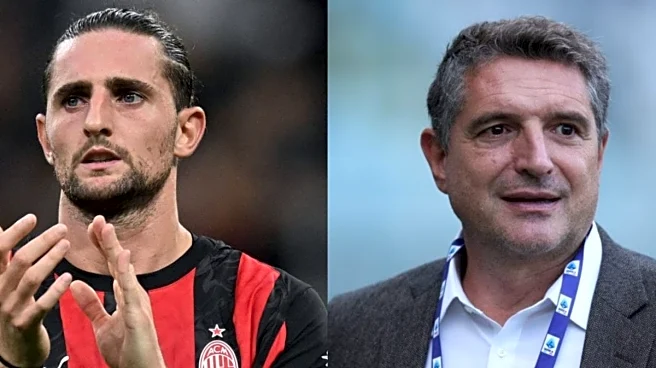The tension between players and football executives hit a boiling point this week after AC Milan midfielder Adrien Rabiot slammed Serie A’s decision to stage a league match in Australia, calling it “completely
crazy.”
The French international, currently away on national duty, told Le Figaro that the league’s push for global exposure has gone too far.
“I was surprised when I learned that AC Milan will be playing a Serie A match against Como in Australia,” Rabiot said.
“It’s completely crazy. These are financial agreements for visibility, things that are beyond us. There’s so much talk about schedules and player health — but it’s absurd to travel that far for a domestic match.”
The match in question — Milan vs. Como, set for February in Perth — was organized after the San Siro became unavailable due to preparations for the Winter Olympics.
Serie A chief Luigi De Siervo defended the decision, framing it as an opportunity to grow Italian football’s global footprint.
But De Siervo didn’t hold back when asked about Rabiot’s criticism.
“He’s right that players aren’t consulted,” De Siervo admitted, “but Rabiot forgets, like many footballers earning millions, that they are paid to play football. He should respect the money he earns and the wishes of his club, Milan, who agreed and even pushed for this match abroad.”
The league boss also pointed to other sports as inspiration for the move.
“The NFL and NBA have been playing overseas for years — it’s about being a global product,” he said. “The Tour de France started from Florence last year, the Giro d’Italia often begins abroad. This is not to weaken football, but to strengthen it.”
UEFA, which has long opposed domestic league games being played outside their home countries, reluctantly approved both the Serie A fixture in Perth and a LaLiga match in Miami, calling the current FIFA framework “unclear.”
Still, De Siervo insists this could be a model for the future — even if players like Rabiot aren’t thrilled about the mileage.
“Football can’t afford to stand still,” he said. “We have to think globally — or risk being left behind.”
(with Reuters inputs)




/images/ppid_59c68470-image-177102753183257032.webp)


/images/ppid_a911dc6a-image-17710264327998831.webp)

/images/ppid_a911dc6a-image-177102646607765106.webp)




